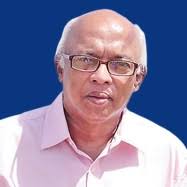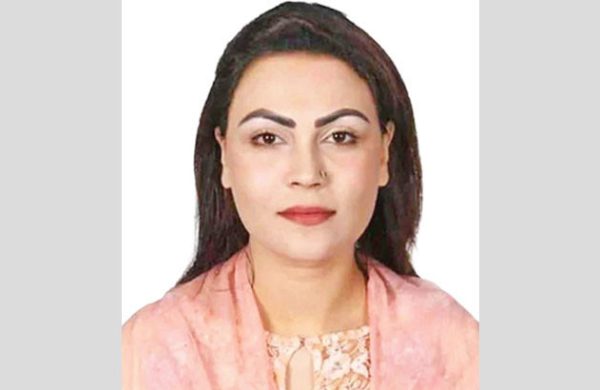Life . . . beyond Politics, out of Power
- Update Time : Monday, November 11, 2024

—Syed Badrul Ahsan—
Political power, the yearning for it, is always a stimulant to ambition. It is also glory that is fleeting. Now that Kamala Harris has lost the presidential election in the United States, questions are beginning to be asked about the life she will have once she leaves the office of Vice President in January. Given some instances in the recent past, she might go into writing books or be part of a think tank.
More likely, given that she is only sixty, and an energetic sixty at that, she might plan on another run for the presidency in four years’ time.
It is all, of course, a matter of speculation. When politicians come close to attaining power and then fail to come by it, life becomes a trifle uncertain, even confusing. In 1968, Vice President Hubert Humphrey lost the presidential election to Richard Nixon, went back to the Senate in 1971, where he had earlier served for years before President Lyndon Johnson picked him as his running mate in 1964.
Humphrey died in 1978. As for Nixon, after losing to John F. Kennedy in 1960 and then losing the race for California governor in 1962, he travelled the world, kept in touch with global leaders and wrote extensively on foreign affairs.
In 1966, Nixon campaigned for his fellow Republicans at the mid-term elections. The gains the party made were attributed to Nixon’s campaigning for its candidates. He was suitably rewarded with the presidential nomination again in 1968. In 1974, following his resignation from the presidency, Nixon went visiting such places as China, with whose leaders he had inaugurated a new phase in diplomacy in 1972. He went to the Soviet Union. And he wrote informed articles on politics and international relations.
Loss of power is almost always the sudden emergence of emptiness for political figures. Yet there are those politicians who quickly reinvent themselves through forging a new path in life. Michael Portillo, once a powerful British politician with ambitions of being Prime Minister, lost his parliamentary seat at the 1997 election, returned to the Commons in 1999 and then decided to bow out of politics.
In the past many years, he has written works on such subjects as railway journeys through Britain and Europe. At the same time, these journeys he brought to television, together with his travels to diverse corners of the globe, such as Spain, where his family roots are embedded.
Leaders who lose power sometimes wallow in misery. Mikhail Gorbachev, who started out with huge promise as the new leader of the Soviet Union in 1985, was eventually unable to fulfil his ideals of creating a socialist but democratic Soviet Union. By 1991, not only did he lose power as the last President of a state forged by Lenin, Trotsky and Stalin but also presided over the break-up of the country. In his years out of power, he formed the Gorbachev Foundation to keep himself relevant before his fellow citizens. It did not help, for he had become a reviled figure among his people. He wrote his memoirs. When he died, not much of mourning was observed in Moscow.
In Bangladesh, the departure of Tajuddin Ahmad from Bangabandhu’s government came as a shock to citizens. As Prime Minister of the Mujibnagar government in 1971, Tajuddin was a leading figure in building resistance to the Pakistan army’s occupation of the country. His formidable intellect was able to withstand all the intrigues planned against him in 1971. His differences with Bangabandhu, with whom he had been a team in defence of Bengali rights in the 1960s, widened to an extent where the two leading lights of Bangladesh’s freedom needed to part company.
Out of power, Tajuddin Ahmad lapsed into silence. Left-wing political parties wanted him to join them. There were suggestions too that he form a political party of his own. He would have none of that. He did not join Baksal but remained fully loyal to Bangabandhu. His death snuffed out the hope that he would be able to reclaim Bangladesh for its people following the assassination of the Father of the Nation.
How have dictators fared after power slipped from their hands? Ayub Khan moved out of public life after handing over power to Yahya Khan. There is no record of him speaking on Pakistan’s problems following his departure from power, though he was upset at the way his successor was handling the situation in Pakistan’s eastern province, soon to be Bangladesh. He advised Yahya Khan’s brother, who had been sent to him to solicit his views on the situation, to inform Yahya that Pakistan’s army should be withdrawn from East Pakistan since he believed the military operations had already become a lost cause.
Yahya did not of course pay heed to the advice. When he himself lost power to Z.A. Bhutto following the loss of East Pakistan, he was promptly placed under house arrest, in which condition he remained till Pakistan’s third military ruler Ziaul Haq released him. Astonishingly, Yahya Khan was given a funeral with full military honours when he died in 1980.
An influential politician who made a new life for himself after the years in power was Al Gore. Having served as Vice President under Bill Clinton and then lost the presidential election to George W. Bush in 2000, Gore embarked on a mission to save the world’s climate. In the past couple of decades and more, his has been a leading voice in saving the climate from the destruction it has been subjected to everywhere. Gore’s views on climate change are taken seriously by political leaders who have come to power in diverse global regions since he left office in 2000.
In the Indian state of West Bengal, Jyoti Basu and Buddhadeb Bhattacharya, once a machine which propelled the CPI (M) to governance and sustained it for more than three decades, spent the years out of power in silence at home. Leon Trotsky, hounded out of power and out of the Soviet Union by arch rival Stalin, wandered away to different places before finding refuge in Mexico, where he remained active in waging propaganda war against the leadership in Moscow. In 1940, he lost his life at the hands of an assassin reportedly despatched by Stalin.
Charles de Gaulle’s departure from the presidential office in France was sudden and rather unexpected. In April 1969, having vowed to resign should he lose a constitutional referendum, he called it quits when the referendum was rejected by the electorate. He retired to his country home in Colombey les deux Eglises, isolating himself from the public, watching television news and leaving instructions with his family that his funeral should be a simple affair.
Death came to him as he watched the news on a November day in 1970. Lyndon B. Johnson spent the five years after leaving the White House in 1969 at his ranch in Texas. He grew a long ponytail. Three days after Richard Nixon was sworn in for a second presidential term in January 1973, Johnson died suddenly.
Nikita Khrushchev, ousted from power in October 1964, led a quiet life for the few years of life which remained to him. Towards the end, his memoirs ‘Khrushchev Remembers’ became quite a sensation when it became available to readers especially in the West. Iskandar Mirza, having imposed martial law in Pakistan with Ayub Khan in October 1958, was within weeks forced to go into exile in Britain. He served as the manager of a restaurant in London and also recorded his thoughts on his life and career as part of a projected biography. Mirza died in 1969 and was buried in Tehran.
In her post-power years, Hillary Clinton has busied herself writing books, staying largely away from the public eye. Whether Kamala Harris will do a similar act is a question to which the answer is not available yet. And will Rishi Sunak go into writing too?
———————————————-
Syed Badrul Ahsan writes on politics, diplomacy and history



















